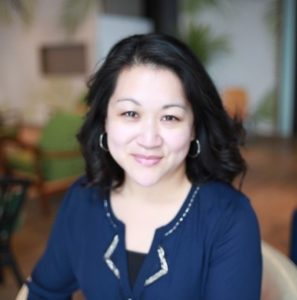Aftershock
Reviewed by Hannah Lau
Aftershock
Directed by Feng Xiaogang, Huayi Brothers Media Corp
China, 2010, 135 minutes
Mandarin Chinese with subtitles
Available on iTunes and Amazon.
Trailer can be viewed on YouTube.
“Earthquake in China”
Whenever these words are heard, the first thing that comes to mind is usually the devastation in Sichuan province that took place in 2008. But for those who are old enough to have been around for it, they’ll also think of the Tangshan earthquake of 1976. The magnitude 7.5 quake claimed the lives of 240,000 people who lived in the industrial city of Tangshan, located 140 kilometers away from Beijing. This tragic event in history is the starting point in director Feng Xiaogang’s film Aftershock.
At the time of its release in 2010, Aftershock, was the highest grossing domestic film in China. It was also the first non-Hollywood film to be played in IMAX theatres.
But much like most films that are based on a natural disaster or a great historical tragedy, the catastrophe is only there to get you through the front door. The real point of the film is something much deeper, more complex, and personal.
“Save my son.”
The earthquake is over. The mother has made her impossible choice of choosing which of her two children to save from the rubble. And with that, the stage is set for the real story to begin.
The story, based on a novel of the same name by Zhang Li, takes viewers through three different life stages of the children’s lives—from the earthquake and immediately after, their adolescent years, then into adulthood—all the while dealing extensively with the complexities of Chinese family dynamics and cultural expectations.
The well-paced delivery is simple, as to maintain the centrality of the characters, yet rich with nuances, that together help keep the story moving and the audience engaged. Audiences are given an inside look at the emotional, mental, and relational impact of surviving such a traumatic event. But more than that, it offers insight into how Chinese people process pain.
The inter-connectivity of pain
In the collectivist Chinese culture, pain is not just pain, and is never solely one’s own either.
The grandmother, who, grieving the loss of her son and granddaughter, blames her daughter-in-law and tries to take her surviving grandson away from his mother in the name of pragmatism.
The mother, Yuan Ni, who is guilt-stricken from choosing to save one child over another, is indebted to her mother-in-law for not taking her son away.
The son, Fang Da, grows up fearful of disappointing his mother, appeasing her at every turn, pressuring his wife to do the same, as needing to prove that he was worth being saved over his sister.
The daughter, Fang Deng, naturally hurt for not being chosen to be saved, is also overcome with guilt for not living up to the expectations of her adoptive parents and ashamed of her life choices.
All of these characters end up in the exact same place—helplessness. The Chinese word 无奈 (wúnài) captures this well, which means “helpless,” but perhaps the English doesn’t do the Chinese meaning justice. It’s the kind of helplessness found in worse-case scenarios, the kinds of situations these characters have faced, the kind you wouldn’t wish on your worst enemy. Feeling so torn that it aches the soul, where you’re stuck, trapped within a bitter pain so great that you would truly rather die than go on.
This film does a beautiful job in commemorating the lives that were lost in the Tangshan earthquake. But the insight it provides into the people of China and the lingering impact of surviving hardship goes beyond 1976. Whether it’s Tangshan, Sichuan, or any other disaster that China has endured, the pain is not just pain, and it definitely never stands alone.
It’s not that I don’t remember, it’s that I can’t forget. —Fang Deng
Image credit: Aftershock trailer.

Hannah Lau
Hannah Lau was born and raised in Canada. Growing up with immigrant parents from Hong Kong gave her a rich perspective on both Eastern and Western cultures. She has spent her adult life in Asia, beginning in China serving through work in the marketplace. With a colorful and hard-earned career in …View Full Bio
Are you enjoying a cup of good coffee or fragrant tea while reading the latest ChinaSource post? Consider donating the cost of that “cuppa” to support our content so we can continue to serve you with the latest on Christianity in China.